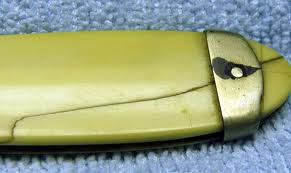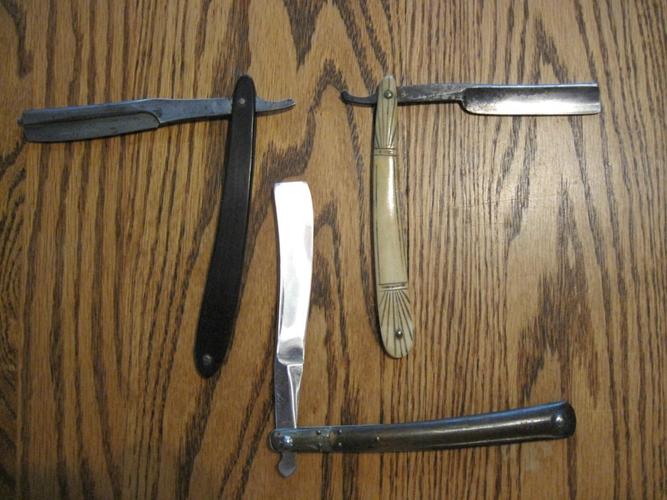Results 1 to 10 of 12
Thread: Resolving a Cracked Scale Issue
-
05-12-2013, 04:00 PM #1
 Resolving a Cracked Scale Issue
Resolving a Cracked Scale Issue
Ok, so I've been restoring this Plum Worcester razor.
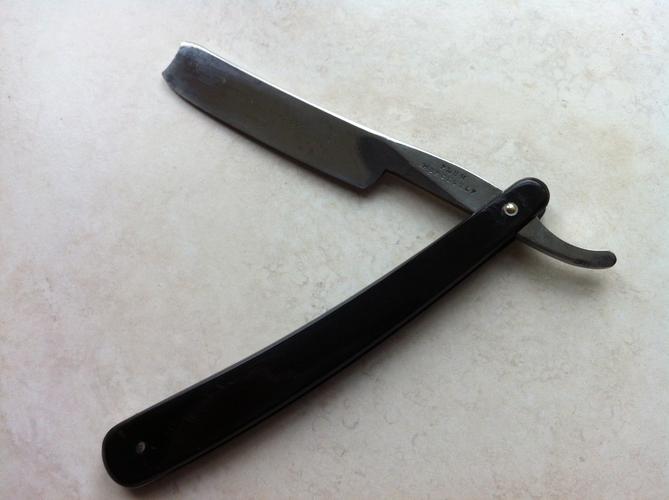
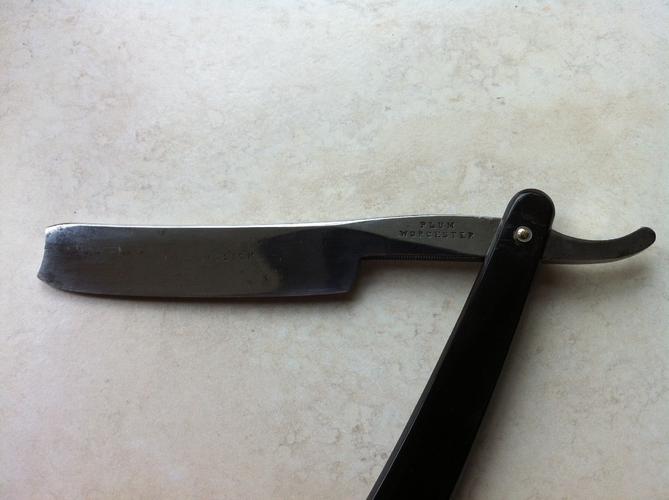
I'd cracked the scales at the pivot when I unpinned them but I glued it using wood glue and left it in a clamp until I was ready to polish them up anyway. It worked fine, except that they split again while I was re-pinning—not due to carelessness but from the pressure of the tightening pin.
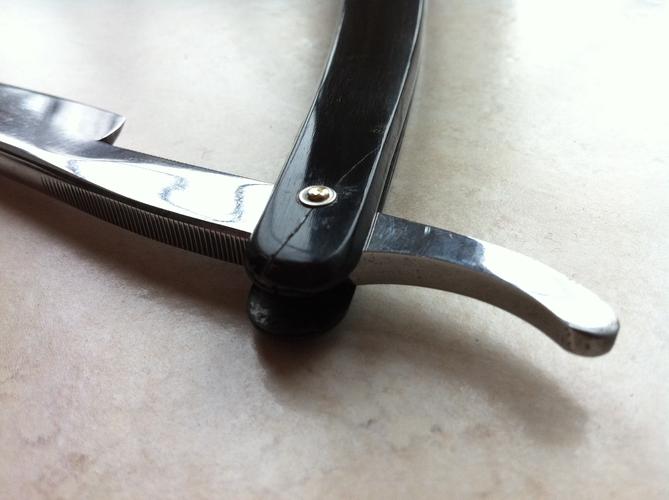
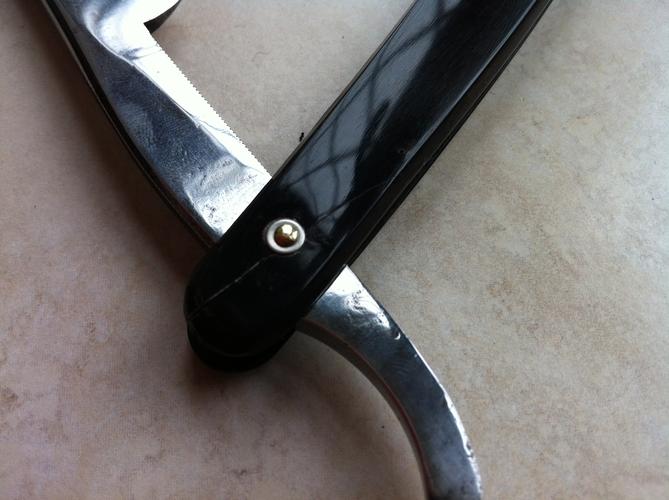
In my mind I have several option and, really, I'm just trying to ascertain which is the best route to go down:
1. Unpin again, glue again (perhaps differently) re-pin again (still with the risk of them splitting open)
2. Attempt to glue them while pinned (somehow...?)
3. Find something to reinforce the inside of the scales with and glue it all together (any suggestions for the best way to go about this?)
4. Buy new scales
5. Use razor in current condition—yeah, the scales are still rather loose but they're wide enough that they're held in position by my fingers while I shave and done flop about dangerously...they're not tight, and technically they're still broken but...does it matter??
What do you guys think? I'd like the razor to be fixed up properly but perhaps it's a trivial matter that I shouldn't worry about.
-
05-12-2013, 06:41 PM #2

If it were me I would rescale them due to the length of the crack. However that is just me. To answer your question if you really wanted to keep the scales epoxy resin. If you reinforced them with epoxy resin after they have been glued together, they more than likely will not crack. I have only done this once to an old wade and butcher buffalo horn set. They were original, but you could tell they had resin on them. Glue them together and dip them in an epoxy resin. Let dry for a day or two and sand away. Good luck.
-
05-12-2013, 07:22 PM #3

I think I know someone who might have some epoxy resin lying about...
I'll give that a go and think about a re-scale if it doesn't work.
-
05-15-2013, 01:29 PM #4

If you want to go historical, there were a lot of creative repairs that were done in the period. Some things I've seen are wrapping a band of brass around the crack or cutting the end off the scales, making a new tip out of horn, and pinning them together with a brass liner.
-
05-15-2013, 01:44 PM #5Senior Member


- Join Date
- Jan 2011
- Location
- Roseville,Kali
- Posts
- 10,432
Thanked: 2027
Do not think that can be repaired at this point,JMO good luck.
-
05-15-2013, 01:52 PM #6
-
05-15-2013, 02:05 PM #7
-
The Following User Says Thank You to ScienceGuy For This Useful Post:
stonebraker (05-15-2013)
-
05-15-2013, 02:13 PM #8

That is a great old splice repair. Nicely shaved piece of brass just underneath, pins all over the place. Gives that razor a frankenstein look to it. Great pic's scienceGuy.
-
05-15-2013, 02:17 PM #9

I have also had this problem.Here is my solution:
Go to any hobby or hardware store (Hobby lobby is a good choice).
buy some brass tubing in 1/16 Id..it is 3/32 od.
drill the pin hole out to 3/32
cut the tubing down using a dremmel cut off and
glue the tubing in the hole using super glue
also glue a thin washer to the inside of the scale and you have it...
I also use this method on Ivory from the start before pinning it, this allows you to pin it tight without stressing the scale material.
This method is a lot of trouble but it does solve the problem.
(The only problem is you must use a washer under the pin on the outside to hide the tubing. Not usual on a ivory scale.)
StingrayLast edited by stingray; 05-15-2013 at 02:21 PM.
I tape everything!!
-
05-15-2013, 02:34 PM #10

I have a single celluloid scale though I don't know if it's the same side. It's not very exciting though, it it.
I like the brass banding, though that might not work because the crack's at the pivot. Unless I found some really thin brass and balanced the other side of the tang with washers...
Brass tubing is a good idea for future rescaling of delicate scales, too.


 2Likes
2Likes LinkBack URL
LinkBack URL About LinkBacks
About LinkBacks






 Reply With Quote
Reply With Quote

